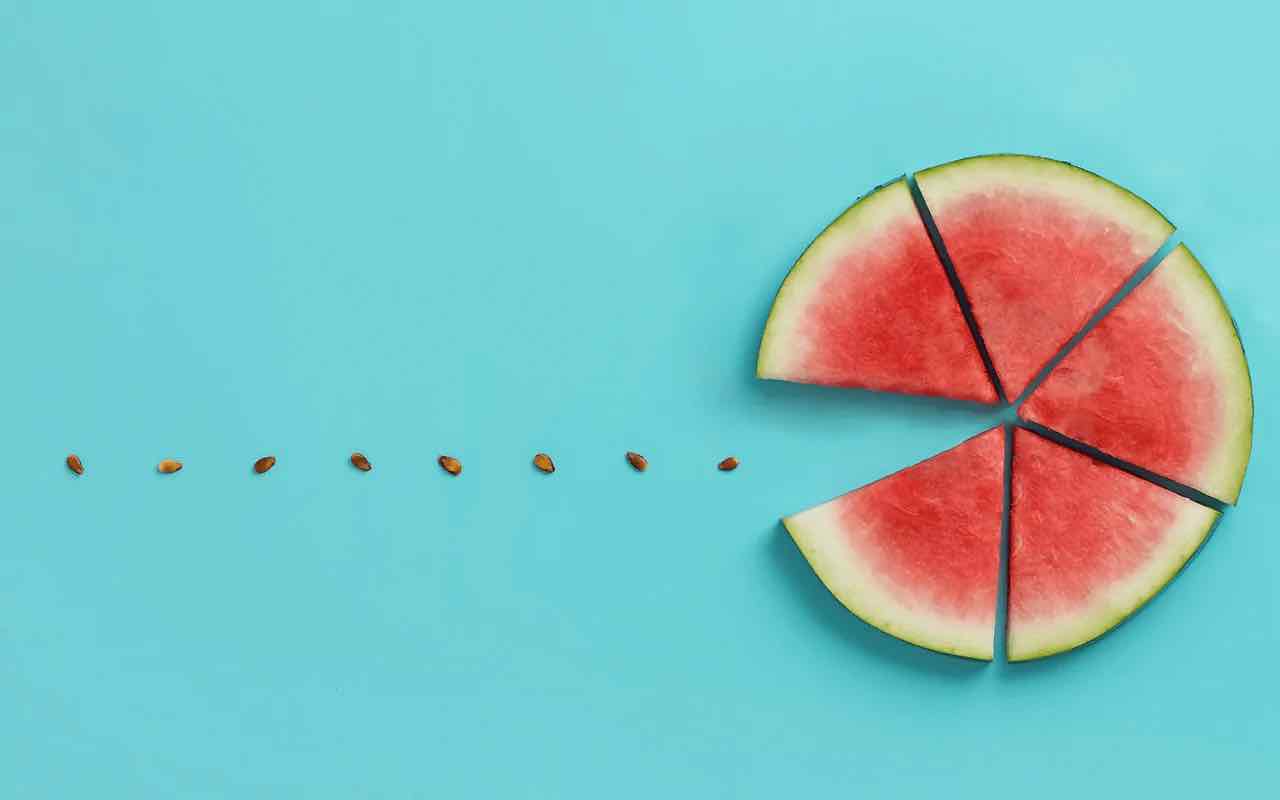Watermelon is notoriously rich in seeds, most of which are removed even if we sometimes end up eating them. Are they harmful? Before answering this question we need to understand the nutritional value of the fruit in question. Watermelon offers numerous benefits. Studies show that watermelon has anti-inflammatory properties, which can help reduce the effects of stress and inflammation in the body.
Additionally, the fruit is packed with vitamins, minerals, and antioxidants that promote overall health and well-being. But what about the little black seeds? Are they safe to eat? Do they have any nutritional value? In this article, we analyze whether eating watermelon seeds is bad for you and whether there are any benefits to including them in your diet.
However, we must consider their limited presence. So we can anticipate that consumption is unlikely to cause any significant harm and health benefits. However, people allergic to watermelon seeds can experience severe side effects, in which case it is best to avoid them altogether.
What’s wrong with eating watermelon seeds?
Although the seeds are delicious and nutritious, there are a few reasons why they should be avoided. First, you may be allergic. Although it seems exaggerated, in reality, it is a surprisingly common allergy, especially among children. Eating the seeds can cause a range of symptoms ranging from mild itching and swelling to anaphylactic shock.
More generally, the seeds contain some toxic compounds that may not be safe to eat. In particular, the seeds contain amygdalin, a compound that breaks down into cyanide in the body. It is a toxic substance that can be harmful if consumed in large quantities. Other plants, including almonds and peaches, also contain small amounts of amygdalin. However, watermelon seeds contain the highest concentration of it.
However, when consumed in a reduced way, the seeds are a good source of protein and fiber. They also contain vitamins such as vitamin E, B6, magnesium and potassium. They are also a good source of healthy fats. Vitamin B6 and magnesium can contribute to brain and nervous system health, while potassium is beneficial for heart health. Fatty acids can also have anti-inflammatory properties.
How many calories are there in a watermelon seed? One cup of seeds (about 16 seeds) contains 91 calories. This equates to about 5% of the recommended daily calorie intake for an average adult. If instead we choose the Black Pearl variant, rather widespread in the greengrocer and in supermarkets, the quantity of seeds in the watermelon changes.
This particular fruit has been designed and created precisely to avoid that there is an exaggerated amount of seeds on each slice. In this way, those who are allergic can eat the fruit with some peace of mind and even children can avoid the occurrence of severe allergic forms. The seeds are great for birds and chickens. So if we have a garden we could think of putting the leftover seeds in a bowl and leaving them for the free consumption of the birds.
–

/data/photo/2022/08/11/62f4f398162e9.jpg)